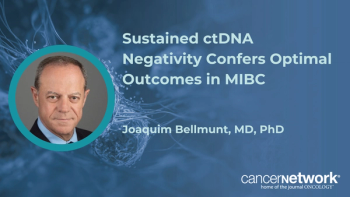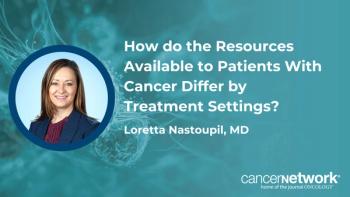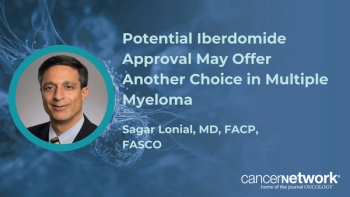
Oncology NEWS International
- Oncology NEWS International Vol 5 No 10
- Volume 5
- Issue 10
Unscheduled Cancer Pain Admissions Costly: Close to $5 Million a Year at M.D. Anderson
HOUSTON-Unscheduled hospital admissions for treatment of pain represent a significant cost-$4.7 million annually in a study from The University of Texas M.D. Anderson Cancer Center.
HOUSTON-Unscheduled hospital admissions for treatment of painrepresent a significant cost-$4.7 million annually in a studyfrom The University of Texas M.D. Anderson Cancer Center.
Monica M. Larsen, BA, of the Department of Pharmacoeconomics,who presented the abstract at the 8th World Congress on Pain,said that more effective outpatient pain interventions are thekey to reducing these expensive admissions.
Ms. Larsen and her colleagues reviewed the records of all patientsadmitted through the emergency care unit over a 6-month period.
Of the 1,166 total admissions, 14% were for pain, ranking secondonly to fever (35%). The reasons for the pain admissions werepain management (60%), abdominal pain (24%), chest pain (10%),headache (5%), and back pain (1%).
The mean length of stay for pain admissions was 10.5 days, andthe mean patient charge per admission was $19,000 ($1,800 perday).
Using the hospital-specific cost-to-charge ratio of 0.74, theresearchers determined that the actual hospital cost per admissionfor pain was $14,000 ($1,300 per day). Thus, they were able topredict an annual cost of about $4.7 million for unscheduled painadmissions.
Articles in this issue
over 26 years ago
Worldwide UN Survey Shows Many Impediments to Morphine Availabilityover 26 years ago
Case-Based Pain Curriculum Used in Canadian Schoolsover 26 years ago
Pain Descriptions May Predict Presence of Neuropathic Painover 26 years ago
Neurotoxicity Related to High-Dose Opioid Therapy Can Be ManagedNewsletter
Stay up to date on recent advances in the multidisciplinary approach to cancer.



















































